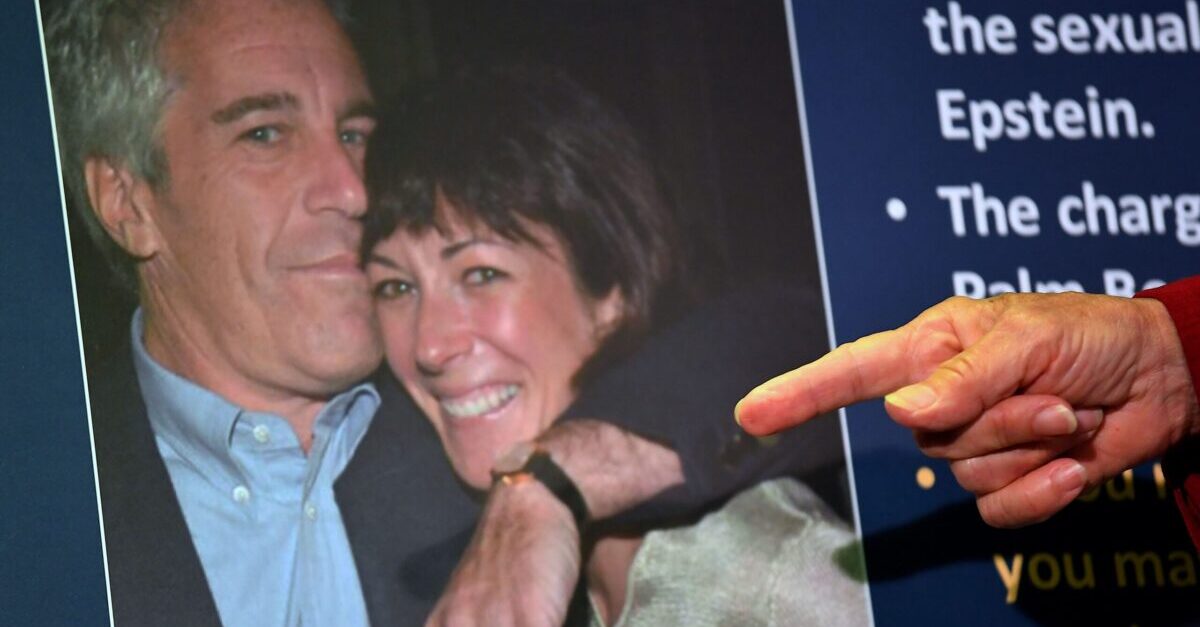
Ghislaine Maxwell’s lawyers tried and failed three times in federal court to release their client before trial. Those attorneys appeared to find a more receptive audience before at the U.S. Court of Appeals for the Second Circuit on Monday morning, where a three-judge panel grilled the government about whether keeping the accused sex-trafficker on suicide watch interfered with her trial preparations.
“She’s kept at night every 15 minutes with lights shining in her eyes so that they can check her breathing,” Maxwell’s attorney David Markus told the judges.
“They’re doing it because Jeffrey Epstein died on their watch, and again, she’s not Jeffrey Epstein,” Markus added later.
Epstein’s death in Manhattan’s Metropolitan Correctional Center has shadowed Maxwell’s related prosecution since its inception last July. The Bureau of Prisons sent Maxwell to a facility across the river from where Epstein was housed: Brooklyn’s Metropolitan Detention Center.
The medical examiner’s ruling that Epstein killed himself sparked criticism about why prison officials removed him from suicide watch status shortly before his death.
Just a week after her arrest, the Bureau of Prisons reportedly put Maxwell on suicide watch, and prison officials have kept her under varying degrees of restrictions ever since.
For Circuit Judge Pierre Leval, the decision was understandable but perhaps questionable.
“One of the main complaints in the defendants brief is that she’s being improperly treated as a suicide risk in a manner that makes her life hell and doesn’t allow her to sleep,” Leval, a Clinton appointee, summarized.
Pointing out that Maxwell’s lawyers argue that this has affected trial preparations, Leval added: “They say there’s no reason for it except for the fact that Jeffrey Epstein committed suicide. The Bureau of Prisons doesn’t want to risk another embarrassment to itself, which is understandable in the part of the Bureau of Prisons, but it’s perhaps unnecessary.”
Circuit Judge Richard Sullivan, a Donald Trump appointee, sounded incredulous when Assistant U.S. Attorney Lara Pomerantz the conditions imposed on Maxwell “routine.”
“Everybody? They do that to all inmates?” Sullivan asked.
Regardless of the panel’s findings about whether suicide risk status was reasonable, Maxwell may have a tough hill to climb. U.S. District Judge Alison Nathan, who is presiding over Maxwell’s case, rejected three separate bail applications on the grounds that the accused sex trafficker is a risk of flight.
“The risks are simply too great,” Nathan declared at the first hearing, never wavering from that finding through two separate challenges.
In order to overturn that finding, the Second Circuit would have to find the judge made a clear error in those determinations, which is a high bar.
The judge repeatedly justified those findings on the grounds that the British heiress, the daughter of the late media mogul Robert Maxwell, kept changing the estimates of her undisclosed and murky assets and could flee to the United Kingdom or France, where she is a citizen. Maxwell’s offer to renounce her citizenship in those countries did not change Nathan’s view.
Late last month, a grand jury added two sex trafficking counts that can land Maxwell an effective life sentence, and her defense team argued this amplifies the stakes of the bail battle.
“We just want a fair opportunity, a fair chance so that she can get ready for the trial of her life,” Markus said. “The government has said that it wants to put her in jail for the rest of her life and yet, she can’t even meet with counsel. She’s stuck trying to prepare for trial over a video screen like this.”
Federal court proceedings have been conducted largely virtually over the length of the COVID-19 pandemic, and that has been the general rule of Maxwell’s court appearance, save for last week when Maxwell demanded to appear in court to plead not guilty to her new charges.
Circuit Judge Raymond Lohier, the final member of the panel and a Barack Obama appointee, questioned whether there was anything unique about Maxwell’s complaints about the challenges of preparing for trial behind bars in the age of the coronavirus that does not affect other inmates.
The panel reserved decision on Maxwell’s request. She is currently scheduled to stand trial on July 12.
[image via JOHANNES EISELE/AFP via Getty Images]